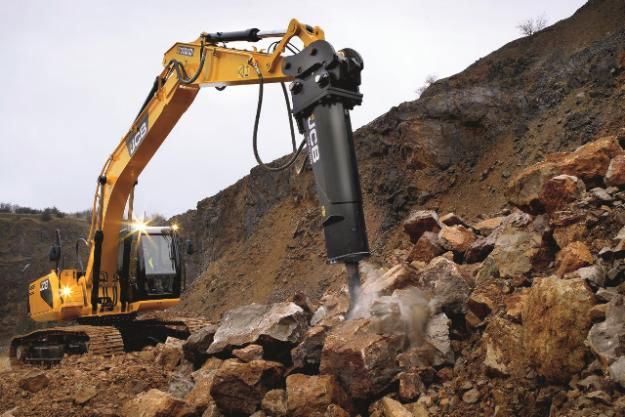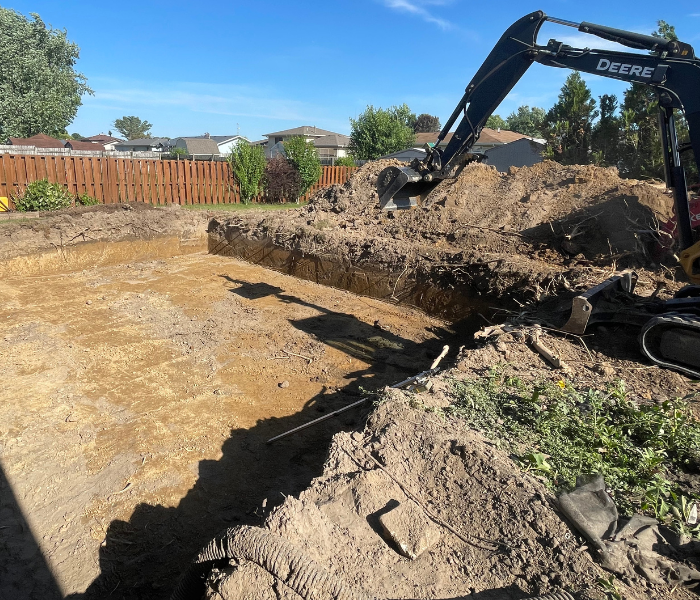Expert Septic Ohio - Trusted Septic Tank Experts in Ohio
Expert Septic Ohio - Trusted Septic Tank Experts in Ohio
Blog Article
Comprehensive Excavation Methods: Understanding the Basics for Success
The mindful planning, precise implementation, and thorough interest to information needed in excavation projects demand a detailed method that encompasses various fundamental facets. The true proficiency lies not simply in recognizing these principles yet in seamlessly integrating them to navigate the intricacies of excavation jobs with skill.
Understanding Excavation Project Planning

Successful excavation jobs are built on the structure of comprehensive and precise preparation. The preliminary stage of any kind of excavation job is the preparation phase, where vital choices are made that can dramatically impact the outcome of the task. During this stage, it is vital to collect all pertinent information regarding the website, consisting of topographical studies, soil make-up, and any type of possible hazards that may exist. Understanding the task spending plan, range, and timeline constraints is critical for producing a detailed excavation strategy that makes certain the project's success.
One key facet of excavation project preparation is the growth of an in-depth timeline that outlines the sequence of due dates, activities, and milestones. This timeline functions as a roadmap for the task team, enabling them to track development and make needed changes to guarantee the task remains on timetable. In addition, a well-defined budget that accounts for all costs, consisting of equipment rental, labor expenses, and materials, is essential for staying clear of price overruns and hold-ups. By very carefully taking into consideration all these aspects throughout the drawing board, excavation projects can be executed successfully and efficiently, causing successful results.
Dirt Evaluation and Site Assessment
Conducting complete soil analysis and site examination is an important action in the prep work stage of any type of excavation project. Soil analysis entails determining the make-up, framework, and buildings of the dirt at the excavation website. This details is important for recognizing the soil's bearing ability, moisture material, and capacity for disintegration, which are essential consider identifying the excavation approaches and tools needed for the project.
Site examination surpasses dirt analysis and encompasses a broader analysis of the total site conditions. This analysis includes identifying any kind of possible threats, such as underground energies, ecological concerns, or unpredictable terrain, that might affect the excavation process. By extensively reviewing the website, project supervisors can create effective excavation techniques that prioritize safety and security, performance, and environmental defense.
Making use of advanced technologies like ground-penetrating radar, dirt sampling, and drone studies can enhance the precision and effectiveness of dirt analysis and website analysis. Investing time and sources in these initial actions can ultimately save time and protect against costly hold-ups or complications throughout the excavation procedure.
Equipment Choice and Utilization
Efficient excavation projects depend greatly on critical tools choice and utilization to make certain optimum efficiency and efficiency. Choosing the best equipment for the task is vital in taking full advantage of effectiveness and minimizing downtime. Factors such as the sort of soil, depth of excavation, and task extent play a considerable duty in determining one of the most ideal tools for the job available.

In enhancement to picking the appropriate equipment, correct utilization is crucial to job success. Operators has to be educated to manage the equipment safely and successfully - septic ohio. Normal maintenance checks and timely repairs aid avoid break downs and guarantee constant efficiency throughout the project
Precaution and Rules Conformity
In the realm of excavation tasks, prioritizing precaution and compliance with policies is vital to ensuring a safe and secure and lawfully audio functional environment. Security steps incorporate a variety of techniques, including conducting detailed site evaluations, applying correct signs and barriers, and providing appropriate safety and security training for all workers associated with the excavation procedure. Adherence to laws, such as OSHA requirements in the USA, ensures that the this contact form excavation task fulfills the necessary requirements to safeguard workers, bystanders, and the surrounding environment.

Monitoring Progression and Adjusting Methods
How can predict managers successfully track the improvement of excavation jobs and adjust their strategies appropriately to enhance end results? Monitoring development is crucial for making certain that excavation tasks stay on track and satisfy due dates.

Verdict
In verdict, understanding the basics of extensive excavation techniques is necessary for the success of any job. By recognizing job planning, analyzing soil and site conditions, selecting suitable devices, abiding by safety policies, and monitoring progress, job supervisors can guarantee a effective and smooth excavation process. Implementing these techniques will certainly lead to successful results and minimize click reference prospective dangers or problems during the excavation job.
The initial phase of any excavation project is the planning phase, where vital choices are made that can substantially impact the outcome of the task. Comprehending the job timeline, scope, and budget plan constraints is vital for creating a thorough excavation plan that makes sure the task's success.
Exactly how can predict supervisors effectively track the innovation of excavation tasks and adapt their approaches as necessary to maximize outcomes? By closely keeping an eye on development and being eager to adapt strategies, job managers can boost the total success of excavation jobs.
By recognizing job planning, assessing dirt and website problems, selecting suitable devices, complying with safety and security policies, and checking progress, task managers can make sure a smooth and effective excavation process.
Report this page